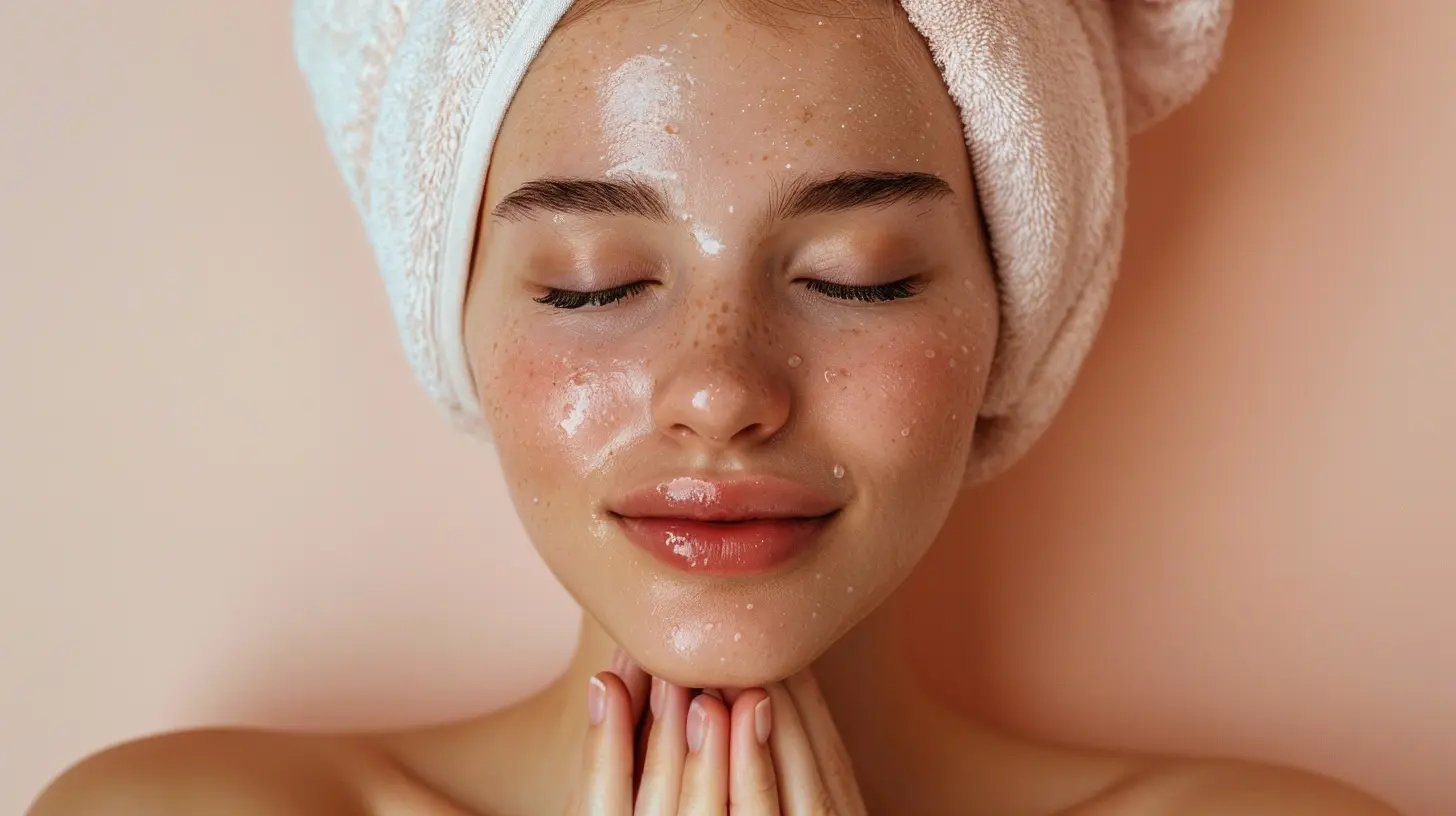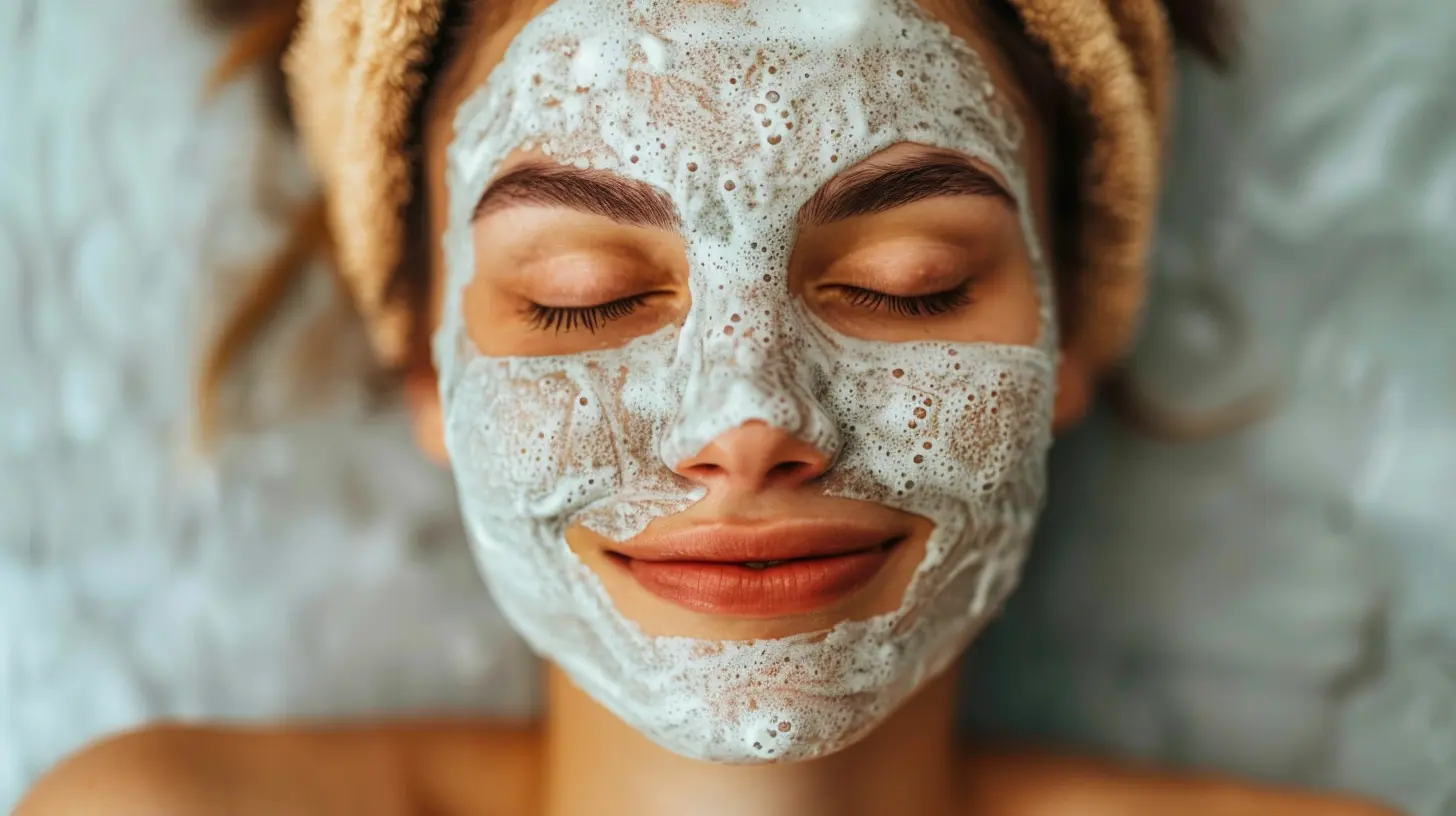How to Treat Oily Skin Without Over-Drying
10 September 2025
Oily skin can be a real struggle. One moment, your face looks fresh and clean, and the next, it’s shining like a glazed donut. If you’ve been battling grease but feel like every product either makes your skin oilier or dries it out completely, you’re not alone. The key to managing oily skin is balance—removing excess oil without stripping your skin of essential moisture.
In this guide, we’ll dive into the best ways to treat oily skin without over-drying it. You’ll get practical tips, skincare routines, and ingredient recommendations to keep your skin healthy, balanced, and shine-free. 
Why Does Your Skin Get Oily?
Before we jump into solutions, let’s first understand why your skin produces excess oil. Your skin has sebaceous glands that create sebum (a natural oil) to keep your skin hydrated and protected. However, when these glands go into overdrive, they produce excess oil, leading to that greasy feeling.Several factors contribute to oily skin, including:
- Genetics – If your parents have oily skin, chances are you do too.
- Hormonal Changes – Puberty, pregnancy, and even stress can trigger oil production.
- Wrong Skincare Products – Using harsh or comedogenic products can irritate your skin, causing it to produce even more oil.
- Overwashing – Cleansing too often strips away natural oils, tricking your skin into creating even more sebum.
Now that we’ve covered the “why,” let’s look at the “how” of treating it properly. 
1. Start with a Gentle Cleanser
Washing your face is essential, but using a harsh cleanser can backfire. Many people think they need to scrub away all the oil with strong, drying face washes, but this only leads to more oil production.What to Look For in a Cleanser:
- Gel-Based or Foaming Cleansers – These can effectively remove excess oil without being too harsh.- Salicylic Acid or Tea Tree Oil – These ingredients help control oil and prevent breakouts.
- Avoid Sulfates & Alcohol – These can strip your skin, making it feel tight and causing rebound oiliness.
✅ Pro Tip: Wash your face twice a day—once in the morning and once before bed. Over-cleansing will only make things worse! 
2. Use a Lightweight, Oil-Free Moisturizer
You might think skipping moisturizer is a solution, but that’s a huge mistake! When you don’t hydrate your skin, it compensates by producing even more oil, leading to an endless cycle of greasiness.Best Moisturizers for Oily Skin:
- Gel-Based Moisturizers – Lightweight and hydrating without feeling heavy.- Non-Comedogenic Options – Won't clog pores or cause breakouts.
- Ingredients Like Hyaluronic Acid – Hydrates without adding oil.
✅ Pro Tip: Apply your moisturizer while your skin is still slightly damp to lock in hydration. 
3. Exfoliate Wisely (But Don’t Overdo It!)
Exfoliation is key to clearing clogged pores and removing dead skin cells, but too much can cause irritation and dryness, leading to more oil production.How Often Should You Exfoliate?
- 1-3 times per week is the sweet spot—any more can lead to irritation.- Chemical Exfoliants (AHAs & BHAs) – These help break down excess oil and unclog pores.
- Avoid Harsh Scrubs – Rough exfoliants can cause micro-tears in the skin, leading to more problems.
✅ Pro Tip: Look for products with glycolic acid or salicylic acid for effective oil control without irritation.
4. Say Yes to Clay Masks
Clay masks are a lifesaver for oily skin! They help absorb excess oil and detoxify the skin without completely stripping it.Best Clays for Oily Skin:
- Kaolin Clay – Gentle and great for mild oil control.- Bentonite Clay – Absorbs impurities and excess sebum effectively.
✅ Pro Tip: Use a clay mask once or twice a week to keep your oil production in check.
5. Use a Toner to Balance Oil Production
A good toner can help keep your skin balanced by controlling oil without drying it out.Best Toners for Oily Skin:
- Witch Hazel – A natural astringent that shrinks pores and controls oil.- Niacinamide – Helps regulate sebum production and reduces redness.
- Rose Water – Soothes the skin while maintaining moisture balance.
✅ Pro Tip: Avoid toners with high alcohol content—they can dry out your skin and cause rebound oiliness.
6. Don’t Forget Sunscreen
Many people with oily skin skip sunscreen because they think it will make them greasy, but sun damage can make your skin worse in the long run.What to Look for in a Sunscreen:
- Gel-Based or Matte Finish SPF – These won’t leave your skin shiny.- Non-Comedogenic & Oil-Free – To prevent breakouts.
- SPF 30 or Higher – Protection from sun damage is crucial!
✅ Pro Tip: Try powder-based sunscreens for easy oil control throughout the day.
7. Keep Blotting Papers Handy
If you tend to get oily throughout the day, blotting papers are a lifesaver. They absorb oil without messing up your makeup or over-drying your skin.✅ Pro Tip: Don’t rub—just press the paper against oily areas to absorb excess sebum without stripping your skin.
8. Watch Your Diet & Hydration
Your skincare routine is important, but what you eat plays a role too. Some foods can trigger excess oil production, while others help balance your skin from the inside out.Skin-Friendly Foods for Oily Skin:
- Leafy Greens & Veggies – Help detoxify the skin.- Omega-3 Rich Foods (Salmon, Flaxseeds) – Reduce inflammation.
- Green Tea – Contains antioxidants that control oil production.
✅ Pro Tip: Drink plenty of water to flush out toxins and keep your skin hydrated.
9. Avoid Heavy Makeup & Use Oil-Free Products
Makeup can sometimes clog pores and make oily skin worse. The key is choosing lightweight, non-comedogenic products.Makeup Tips for Oily Skin:
- Use a Mattifying Primer – Helps control shine.- Opt for Oil-Free, Powder-Based Foundations – These absorb excess oil.
- Set with a Translucent Powder – Keeps your makeup in place without making it cakey.
✅ Pro Tip: Always remove your makeup before bed to prevent clogged pores and breakouts.
Final Thoughts
Balancing oily skin is all about using the right products and maintaining a smart skincare routine. Instead of stripping your skin, focus on gentle cleansing, proper hydration, and using oil-controlling ingredients.By following these tips, you can keep your skin fresh, healthy, and shine-free—without the dreaded dryness. So next time your face feels like an oil slick, resist the urge to over-cleanse and remember: balance is the key!
all images in this post were generated using AI tools
Category:
Skin CareAuthor:

Angelo McGillivray
Discussion
rate this article
1 comments
Jaxon Banks
Balance is key: hydrate without clogging.
September 20, 2025 at 4:41 AM

Angelo McGillivray
Absolutely! Maintaining balance is essential; hydrate while ensuring your products are non-comedogenic to prevent clogging pores.


